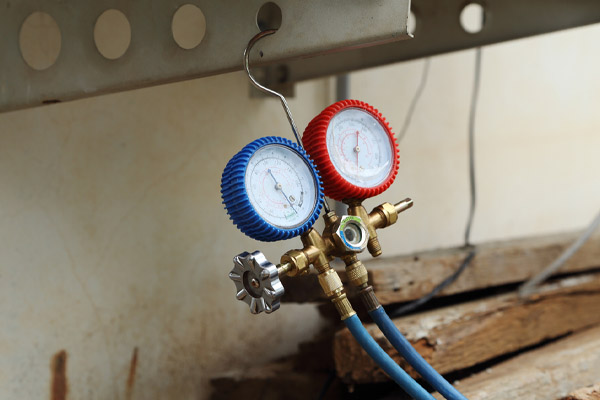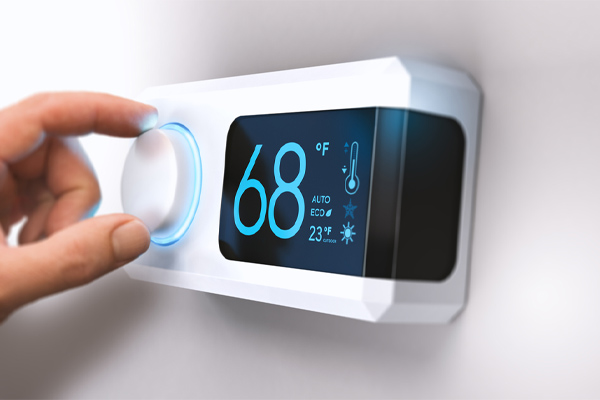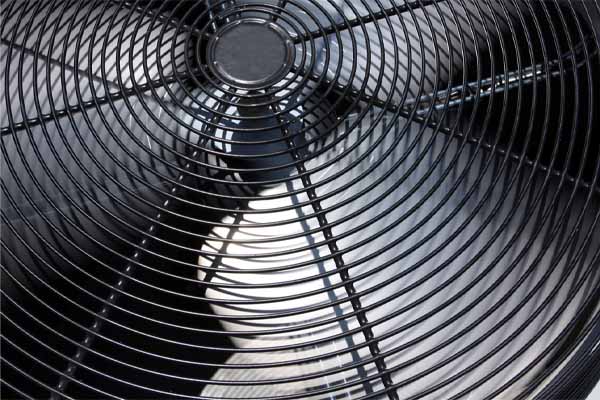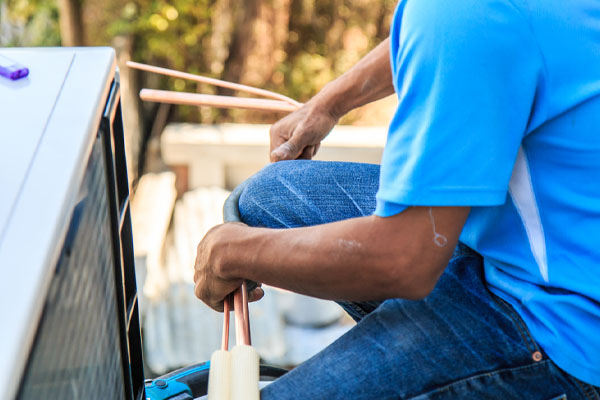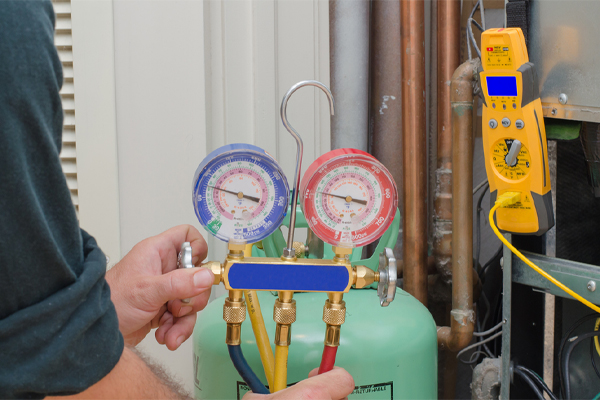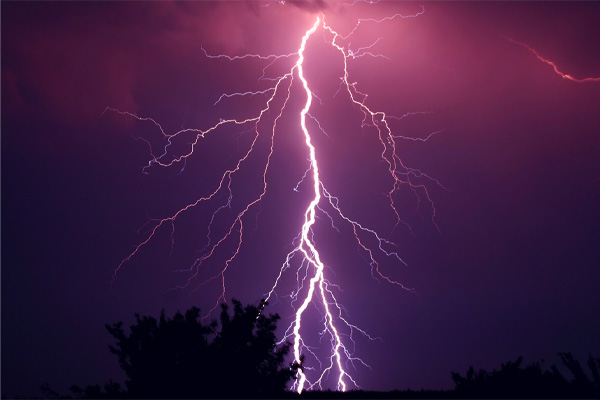
Weather can take sudden turns in the summer. One moment it’s hot and humid, the next it’s rain and thunder. If this has been happening in your area, then try to keep your eyes peeled for the next storm. Check the weather forecasts. However, do you wonder “Can I keep my AC on during a thunderstorm?” It’s tempting to keep the air conditioner running but, instead, you should consider turning it off during thunderstorms or whenever there is a risk of a power outage.
Turn the AC off until power is completely restored. Running the air conditioner during a brown-out or below normal power can damage relays and controls on an AC system when the power returns. Also, a nearby lightning strike could do costly damage as well. It is better to wait for things to settle before turning it on again.
Why Is It Important To Turn Off Your Air Conditioner During A Thunderstorm?
In this article, we discuss why it is important to turn off your air conditioning unit during a thunderstorm or power outage. Likewise, we also discuss how to keep cool and how to tell if your AC unit has been struck by lightning.
1. Lightning Strikes
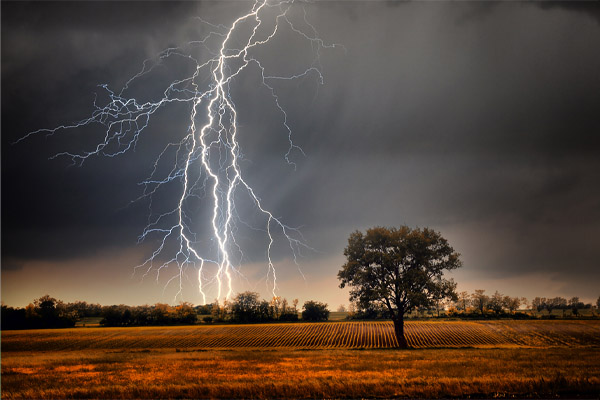
Lighting may not strike often but the risk is real. Many have already died on the field because of it. This should be enough for people to take the threat seriously. However, taking shelter is just the beginning. You should also protect your home and your appliances from the effects of lightning. The connection between the house and the utility lines is particularly vulnerable. If lightning strikes this, then a massive power surge can course through the entire electrical system in an instant. Anything connected to the sockets can sustain serious damage.
2. Air Conditioner Problems
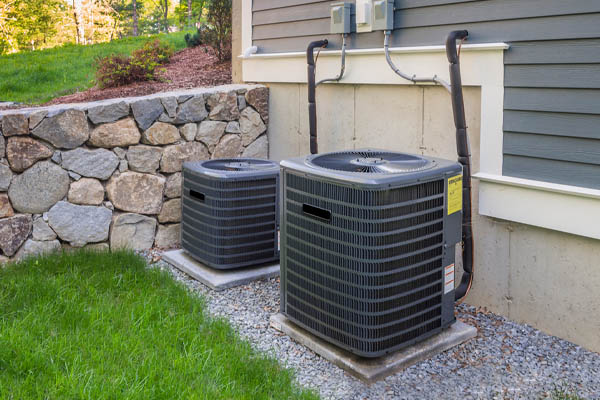
If the air conditioner is running when lightning strikes, then the result can be disastrous. The unit may no longer function because of the surge. Intense heat can melt the plug and fry the electrical circuits. Some air conditioners are beyond repair. The extent of the damage could make it necessary to replace the whole HVAC system. This extremely costly turn of events is avoidable. Simply shut down the AC in a thunderstorm. The momentary discomfort is a small price to pay in comparison.
People may attempt to get the best of both worlds by using a surge protector. They connect the AC to this unit hoping to prevent damage while enjoying cool air in their rooms. Although this seems like a good idea, the reality is that surge protectors cannot match the ferocity of a lightning strike. Lightning rods are more effective. These divert the lightning’s energy into the ground so that it doesn’t wreak havoc in the electrical system. Just remember that no solution is foolproof. That is why turning off the AC is still the best precaution.
Those who spend most of their days at work may find all of this information worrying. They may not be in the house to switch off the AC when they need to. One solution is to turn the system off before they head out. Another is to install a smart thermostat that can connect to the Internet. This lets users switch off remotely from their phones. Once you have taken care of that, you can focus on your work while waiting for the storm to pass.
How to Stay Cool During A Thunderstorm
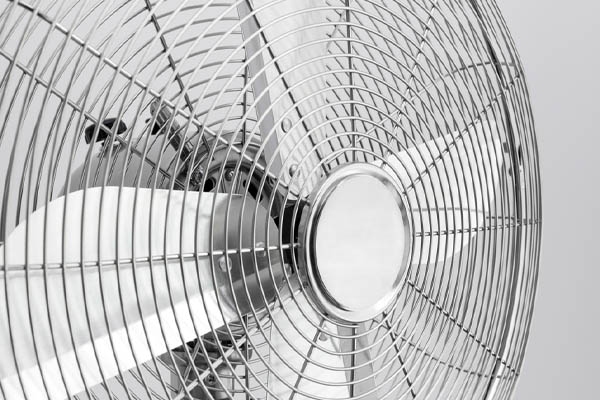
Those who have gotten used to a cold room might find it difficult to switch off. The discomfort can distract them from their tasks or prevent them from sleeping. It is important to remember that this is only temporary. Thunderstorms typically last for 30 minutes so it won’t be a long wait. In the meantime, outside temperatures will drop as the storm approaches.
Open the windows if possible to let the breeze in. If you have power, fans are also reliable substitutes for the AC. They can increase airflow and provide evaporative cooling. They are more robust and relatively cheap to replace if damaged. However, they can only cool what is right in front of them so correct positioning is vital.
Running the Air Conditioner During Heavy Rain
Many are wondering whether they can use their AC when it is raining hard without lightning insight. Indeed, this is quite safe. Outdoor units can work well in the rain as long as there is a proper drainage system. The situation is completely different if flooding threatens to overwhelm the unit. Homeowners should immediately turn off the power to avoid damage. Let the water drain completely after the storm. Ask an HVAC technician to inspect the unit prior to resumption of regular use. It may require some cleaning and repair to function well.
How to Know If Your AC Was Struck By Lightning
AC damage is not always obvious. The unit may look fine on the surface but there are problems lying underneath. Document everything that you saw and experienced. Take photos and videos of the effects of the thunderstorm, if possible.
Try to turn on the thermostat to see whether it responds. If nothing happens, then check the circuit breaker. You might also want to replace the thermostat battery. In case the unit still fails to work, then call an HVAC technician.
If the thermostat works, then the fan and the condenser should come on at the same time. Observe these carefully and reset the circuit breaker if you have to. Ask a technician to check the system if they don’t start in unison.
If the system receives power yet the unit doesn’t start up, then the problem may lie in the outdoor unit. Check the condenser. See if there are nearby breakers and reset them. If either of these trip off, then you will have to get professional help.
Final Words
Prevent damage by turning off your air conditioner during thunderstorms. This can save you money and keep your cooling system problem-free. If you notice system changes after bad weather, then schedule a visit from HVAC technicians. They can diagnose the situation and provide lightning-quick solutions.
Point Bay Fuel Is Always Ready To Tackle Your HVAC Problems

For first-rate HVAC services in Ocean and Monmouth County, New Jersey call Point Bay Fuel. Our HVAC technicians are among the very best and they can perform superior repairs, tune-ups, replacements, and installations for all forms of HVAC equipment. Their experience ensures that the work will always be done on time and correctly.
When you’re looking for competitive prices on cooling and heating services, give Point Bay Fuel a call. You’ll save even more cash on heating and cooling by taking advantage of our maintenance services for assured efficiency. If you’re ready to have new heating and cooling equipment installed, we can assist you in finding the perfect model for your home, your needs, and your spending budget. Our work is always backed by a solid satisfaction guarantee. Call Point Bay Fuel right now to schedule an appointment for HVAC service.
Contact us now by calling (732) 349-5059 to speak to one of our home comfort specialists!
The post Can I Keep My AC On During A Thunderstorm? appeared first on Point Bay Fuel.

